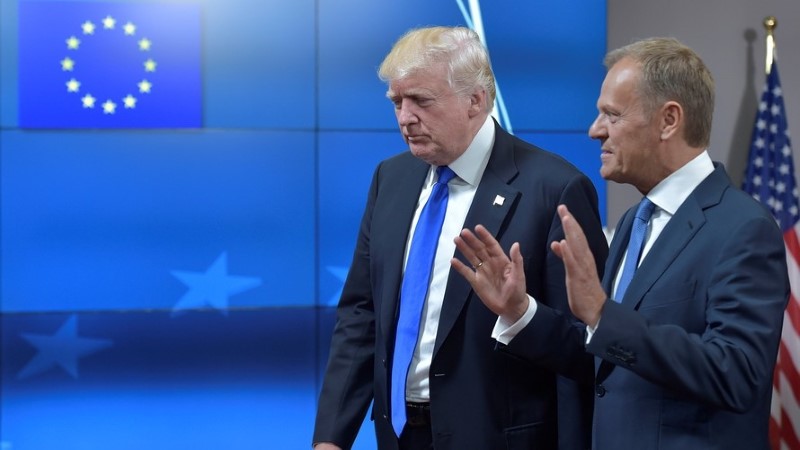Politics
EU and US Begin Trade Negotiations Amid Rising Tensions
The EU and US have started talks on potential solutions to the trade dispute triggered by US President Donald Trump. According to a European Commission spokesperson, these discussions aim to define the “parameters for potential engagement” in resolving the issue.
Key Figures in the Talks
Maros Sefcovic, the EU’s chief trade negotiator, held discussions with US Commerce Secretary Howard Lutnick and US Trade Representative Jamieson Greer to explore ways forward. Despite the ongoing dialogue, significant progress remains elusive, with US officials reportedly lacking a clear mandate from Trump for substantial negotiations.
Negotiating a Deal: EU’s Approach
The EU is preparing a “term sheet” for a potential agreement, focusing on reducing duties, facilitating mutual investments, and easing certain regulations. These efforts are a part of the EU’s strategy to find common ground with the US and lower the economic barriers between the two regions.
Trump’s Reciprocal Tariffs Impact
Starting Wednesday, Trump’s controversial reciprocal tariffs impose a 20% duty on nearly all EU exports, in addition to the existing 25% tariffs on metals, cars, and certain auto parts. Furthermore, Trump plans additional tariffs on products like lumber, semiconductor chips, and pharmaceuticals, affecting around €380 billion worth of EU goods.

White House Press Secretary Responds to Journalists
White House Press Secretary Karoline Leavitt made statements today in response to questions from journalists…
Von der Leyen’s Retaliation Warning
European Commission President Ursula von der Leyen stated that the EU’s main goal is negotiating a deal to reduce tariffs. She warned that the EU is prepared to impose retaliatory measures if talks fail. Von der Leyen called Trump’s announcement a major setback for the global economy. She emphasized the EU’s readiness for further action in response.
Disagreements Over VAT and Other Issues
The Trump administration rejected Von der Leyen’s proposal to eliminate tariffs on industrial goods, favoring non-tariff barriers instead. These include domestic regulations and food standards, which the administration wants to address. Sefcovic clarified that the EU will not negotiate on VAT, as it is vital for member states’ revenue. The EU remains firm on this position despite ongoing discussions.
EU Retaliation Package Looms
The EU will announce a retaliation package on Wednesday, targeting €21 billion ($23.3 billion) worth of U.S. goods. Additional countermeasures may follow next week in response to the 20% tariffs on EU exports. These measures aim to address the impact of Trump’s metals duties. The EU will closely monitor U.S. trade actions and respond accordingly.


